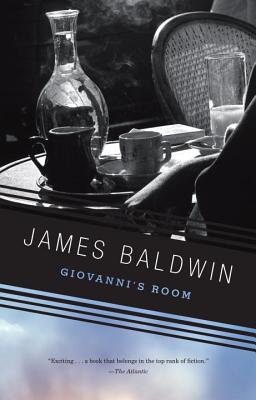APS TOGETHER
Day 8
Part 2, all of Ch. 3, p. 103-118
September 24, 2020 by Carl Phillips
Earlier, I spoke of how rooms here tend to be claustrophobic, the sites of murky activity, sexual and otherwise – the bar, the restaurant, Gionvanni’s room, Joey’s room long ago. With chapter 3 of part Two, the murkiness is outdoors, and David describes it almost like a scene from Dante’s Inferno: “Nevertheless, beneath me – along the river bank, beneath the bridges, in the shadow of the walls, I could almost hear the collective, shivering sigh – were lovers and ruins, sleeping, embracing, coupling, drinking…” Meanwhile David generalizes interior spaces as the antidote to these wraith-like lovers, he imagines “Behind the walls of the houses I passed” that husbands and wives are putting their children to bed, having ordinary (i.e., not sexual) concerns, making for their families a “web of safety.” An interesting shift, also troubling how easily David forgets his own home life, the same way that, when he says he needs a woman and children “to become myself again,” he forgets who and what he is. Or can’t remember. Or doesn’t want to. Or has never known himself.
Has it always been the case, that there’s a sliding scale when it comes to moral decency? Giovanni has contempt for Guillaume, calling him a “disgusting old fairy,” more or less how David thinks of Jacques earlier in the novel. Yet Giovanni and David have both not been above using their sexual and physical charms to get money from these older men; and while they condemn them as fairies, i.e. queer, David and Giovanni are themselves queer, or at least they are engaging in same-sex intimacy that is one possible aspect of queerness. What makes them better, except they’re younger? David couldn’t disguise his open lust for the sailor earlier in the book. Is that any different than Guillaume desiring young men?
It seems very purposeful that the scene between David and Sue is immediately followed by this scene between David and Giovanni. In both, we have someone who shows their raw vulnerability and need to David, and both make him recoil. Part of his anxiety about Hella’s imminent return is that she has decided she wants him. He also fled Joey’s neediness. And he fled his father when his father opened up and showed his own vulnerability after David’s accident. Maybe David’s difficulty isn’t so much that he can’t sort out his sexuality and embrace it; instead, he seems driven away by love itself, by the part of love that depends necessarily on another person.
“But the end of innocence is also the end of guilt.” Maybe it’s enough just to leave this here, for consideration.
Also, this statement of David’s (about Giovanni): “No matter how it seems now, I must confess: I loved him.” David is very reliable and smart about many things. Here, though, I don’t quite trust him as a narrator…Or maybe we are back to what I said about David’s being repulsed by love, the way two opposite magnets repel one another. Here’s an image: in the myth, Tantalus is doomed in hell to forever be reaching for the fruit that hangs above him. Just as he’s about to grasp it, the fruit recedes. This is his punishment. But what if the fruit is what’s being punished, and David’s the fruit? And as soon as someone seeks to hold him, to love him, he withdraws instinctively. Maybe, like home, the point is about never being reached. “You mean I have a home to go to as long as I don’t go there?” David asks. Yes. Exactly.
